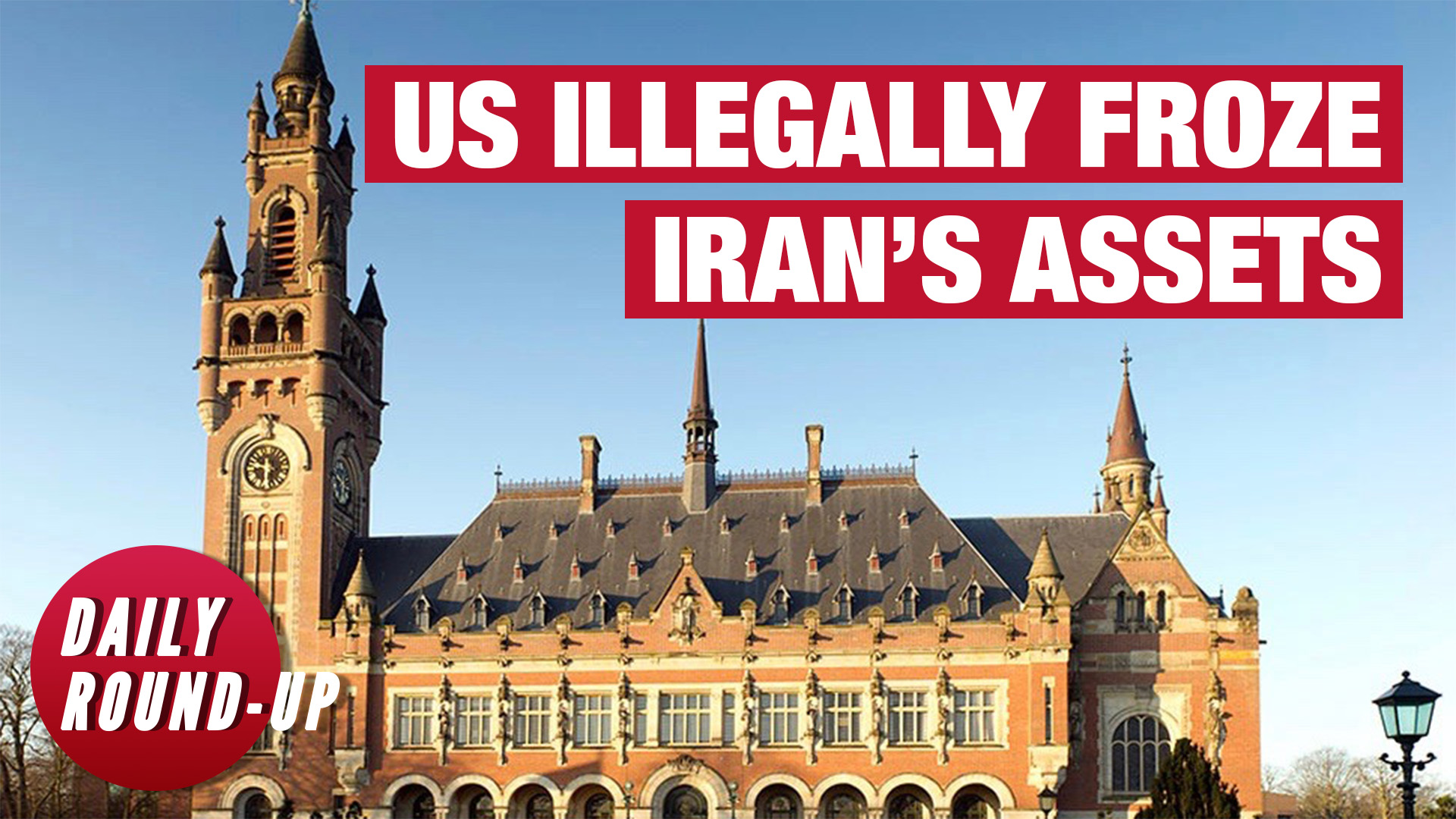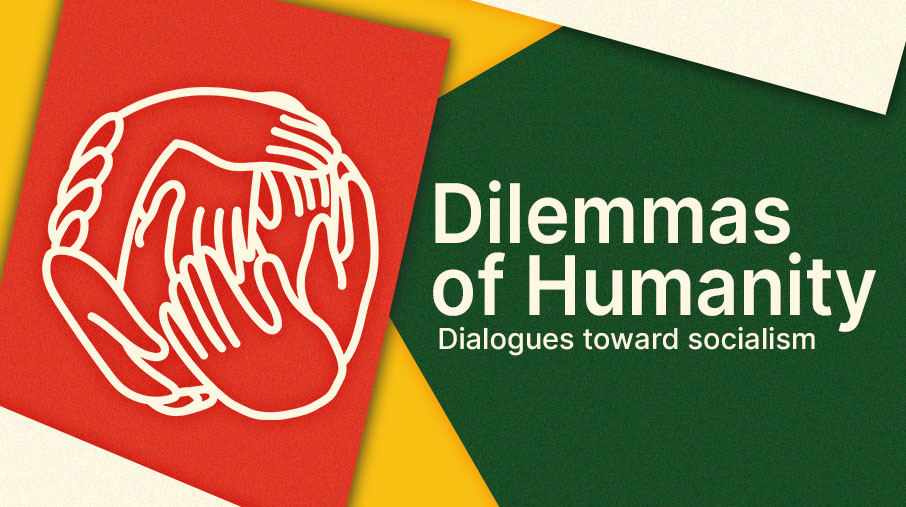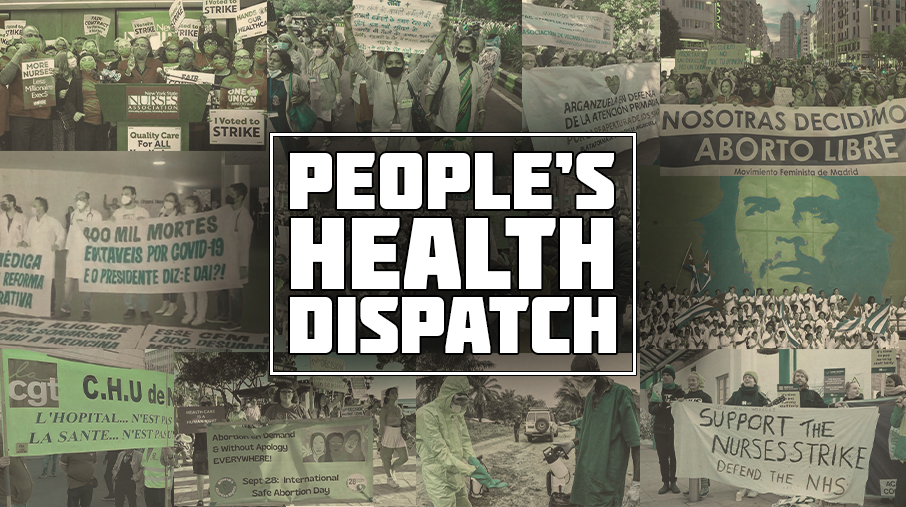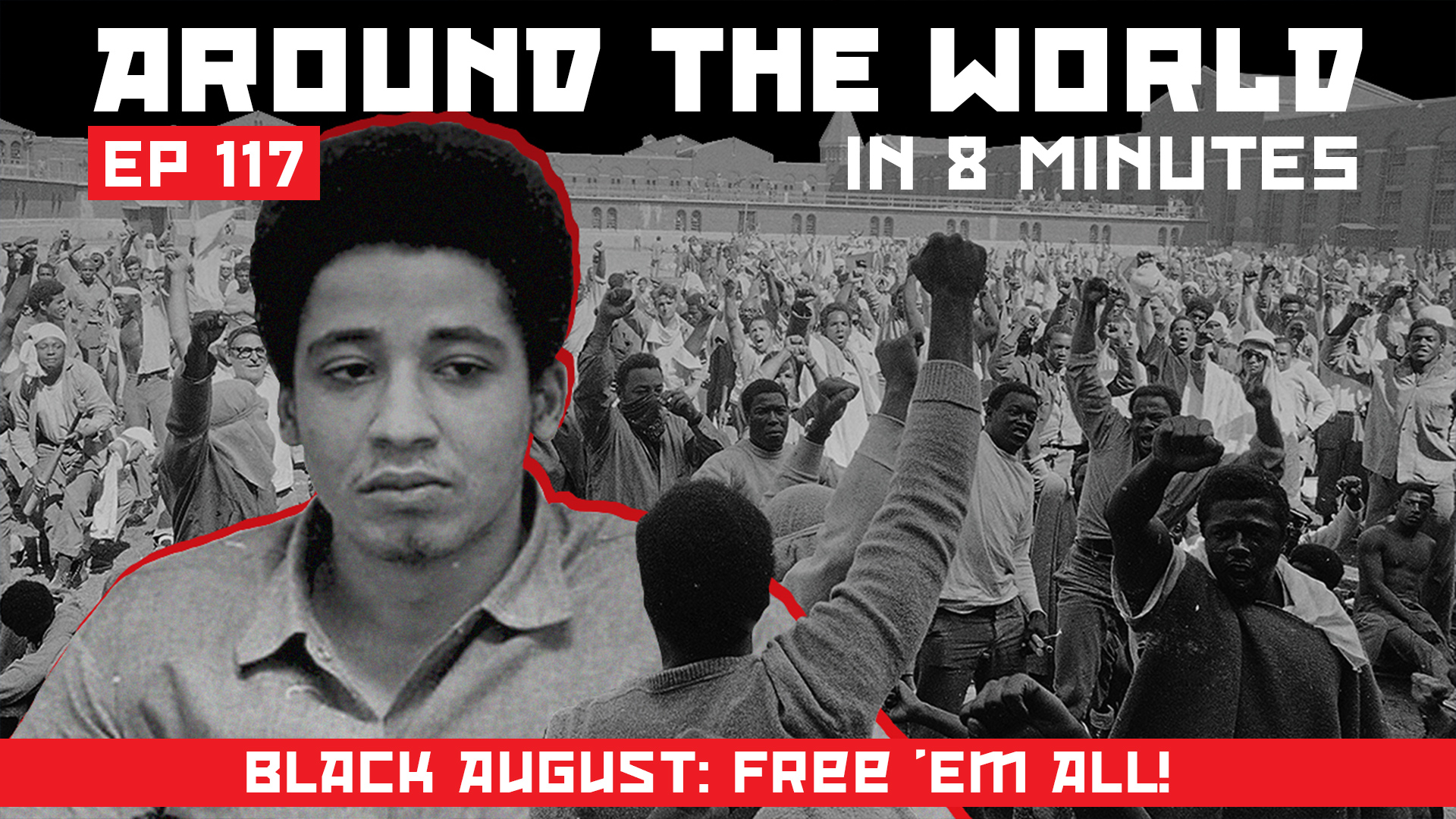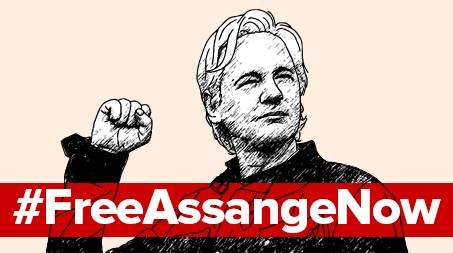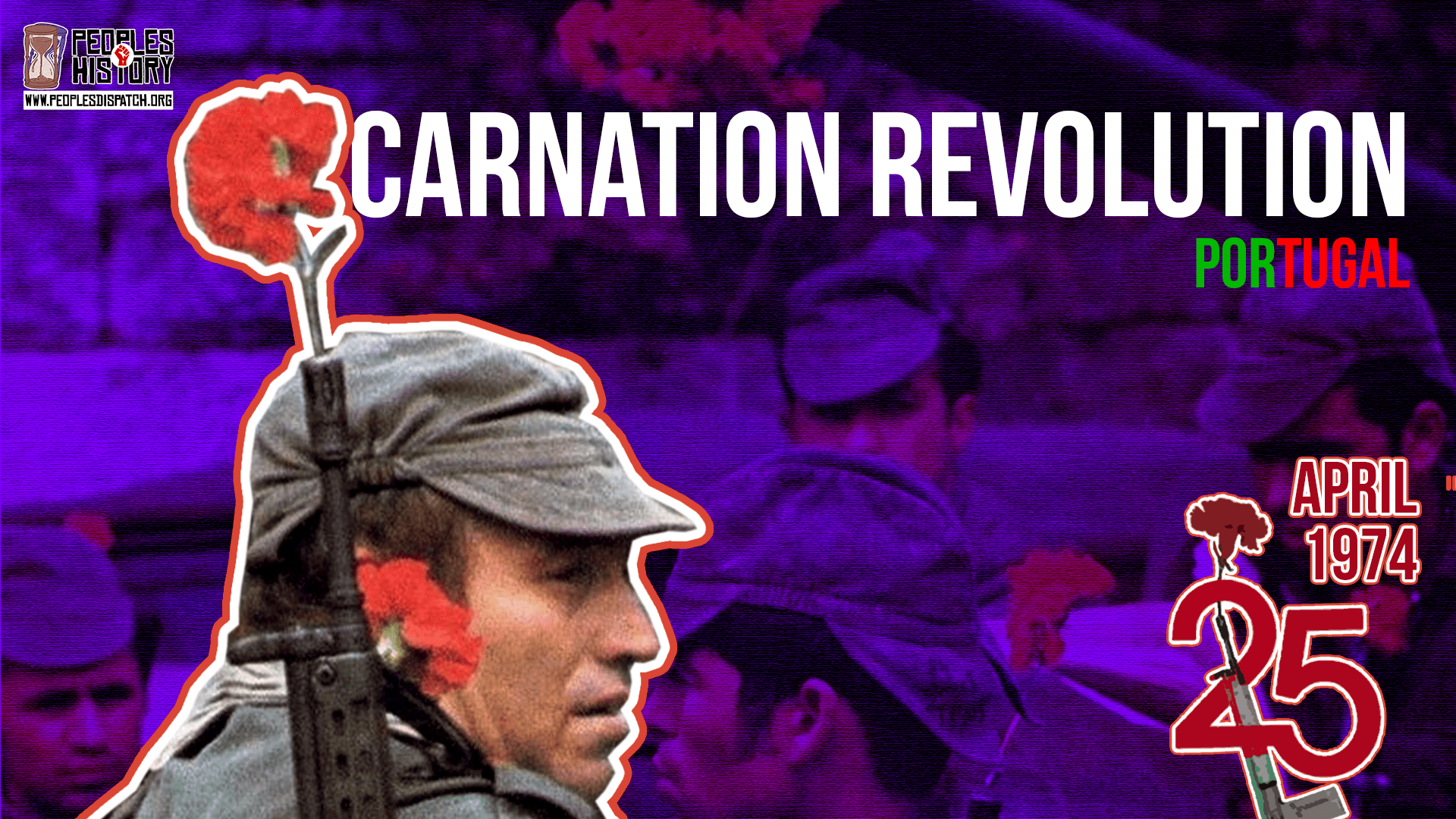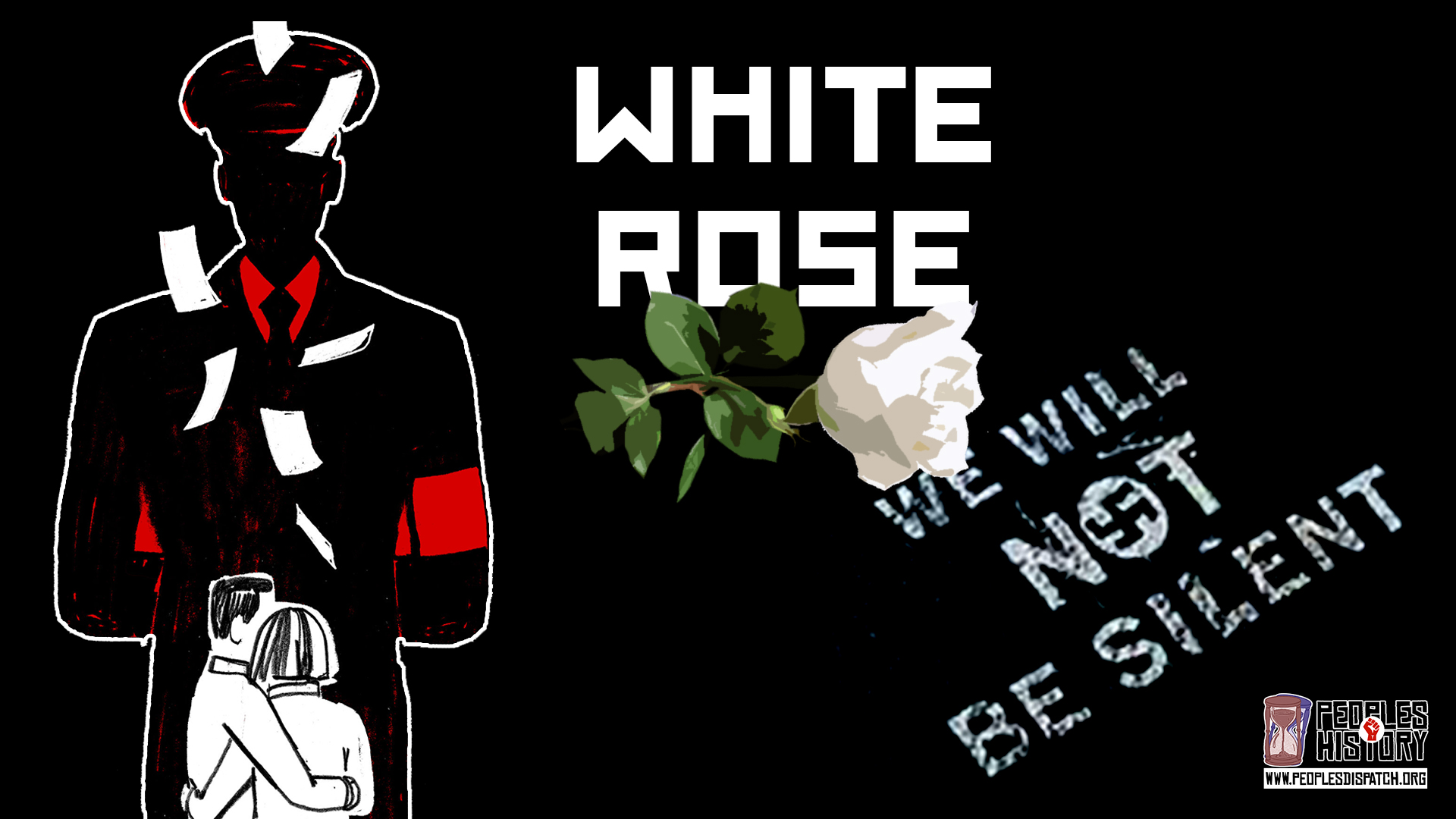 On second anniversary of ‘Presidential coup,’ Tunisians resolve to continue resistance
On second anniversary of ‘Presidential coup,’ Tunisians resolve to continue resistance
President Kais Saied, despite enjoying absolute power for the last two years, has done little to improve the economic and social situation as the people struggle with high inflation, poverty, unemployment, and acute shortages of basic food items. Meanwhile, he has concentrated power and repressed opposition
 Tunisian elections are the third phase of President Kais Saied’s coup project: Ali Jallouli
Tunisian elections are the third phase of President Kais Saied’s coup project: Ali Jallouli
Ali Jallouli, a leader of left-wing Workers’ Party of Tunisia, analyzes the recent second round of the parliamentary election, the resistance to President Kais Saied, and why the Tunisian revolution has not option but to succeed
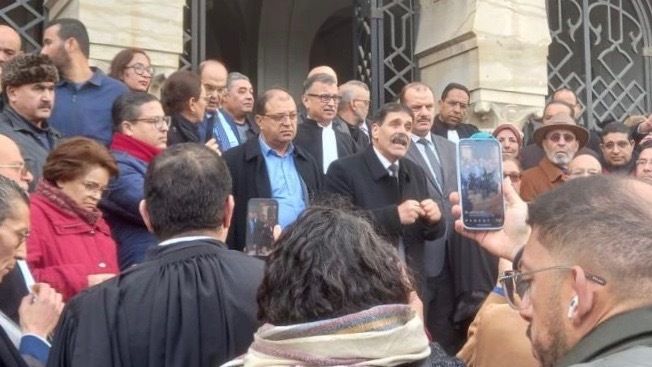 Protests in Tunisia against persecution of political activist Ayachi Hammami
Protests in Tunisia against persecution of political activist Ayachi Hammami
The protests were organized by political groups in the country in collaboration with lawyers and judges who have also opposed the dismissal of 57 judges by President Kais Saied last year
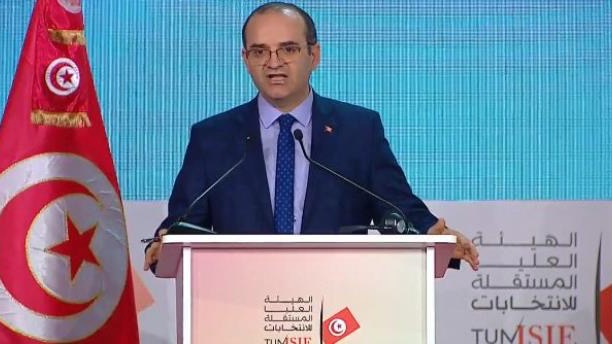 Tunisian parliamentary elections see voter turnout of less than 9%
Tunisian parliamentary elections see voter turnout of less than 9%
These were the first parliamentary elections held under President Kais Saied’s new political system. All of Tunisia’s major political parties had called for a boycott of the elections
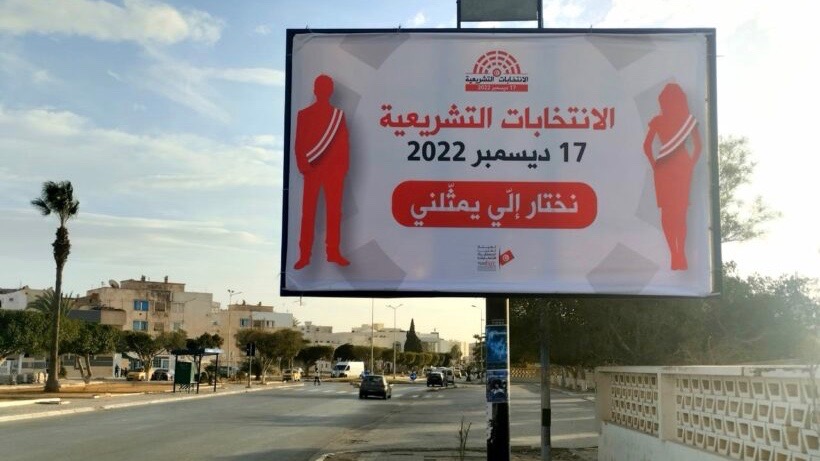 Tunisian political parties term upcoming elections “illegitimate” and call for boycott
Tunisian political parties term upcoming elections “illegitimate” and call for boycott
Elections are taking place in Tunisia more than a year after President Kais Saied dismissed the last elected government
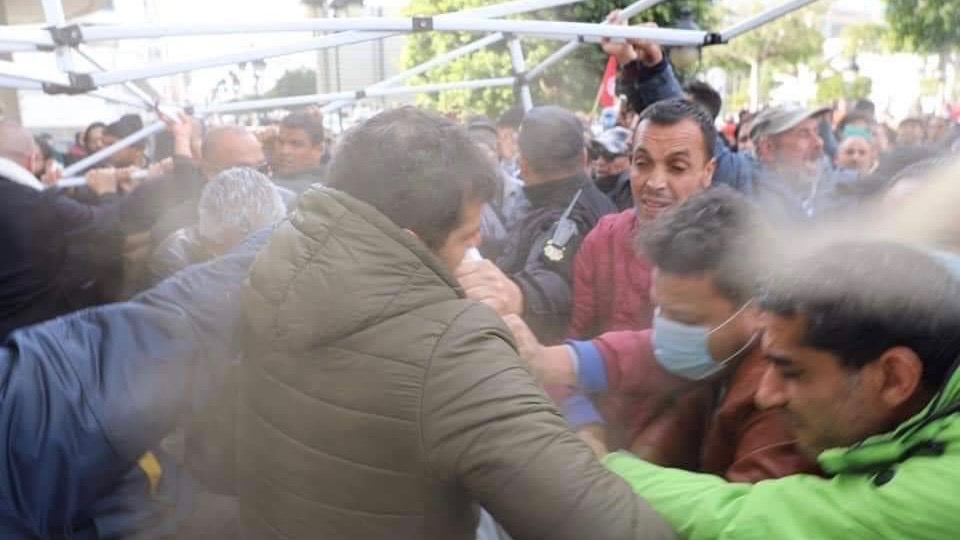 Tunisia likely to see more protests against president Saied’s power grab
Tunisia likely to see more protests against president Saied’s power grab
Over the last few months, Tunisian president Kais Saied has consolidated his control over the executive and legislative authority in the country. His latest action was to announce the formulation of a new constitution to be put to a national referendum next year followed by general elections
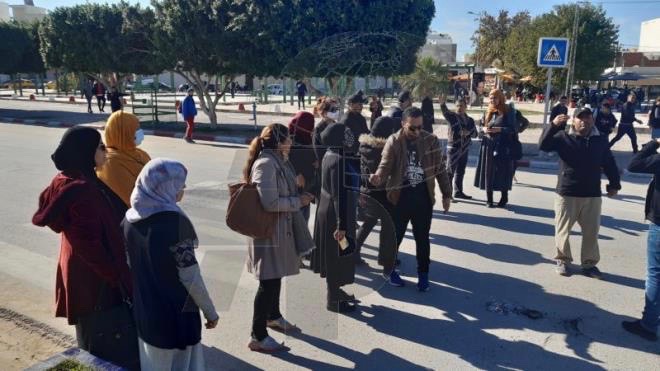 Tunisians protests against revocation of law on government jobs for long-term unemployed
Tunisians protests against revocation of law on government jobs for long-term unemployed
Law 38 directed the government to provide jobs to those who have been unemployed for 10 years or more. The law was a lifeline for the long-term unemployed, especially for those from marginalized and underprivileged communities and regions of the country


